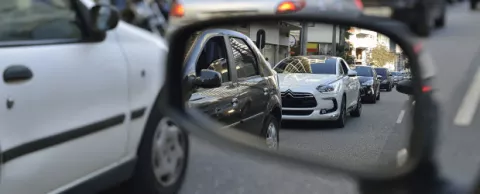
Council Lead Partner Microsoft and one of Brazil’s biggest universities, Federal University of Minas Gerais, have joined forces to harness data from a variety of sources to figure out if it’s possible to predict traffic jams from 15 to 60 minutes in advance.
The plan for the Traffic Prediction Project, according to a VentureBeat report, is to collect traffic data such as historical numbers, drivers’ social networks, transportation departments and Microsoft’s own Bing traffic maps. While there are numerous ways for drivers to find out where the traffic is nasty at a given moment, that knowledge frequently doesn’t give them time to plan an alternate route.
Researchers connected with the project will take advantage of Microsoft’s Azure cloud computing platform, which will be needed to sift through massive amounts of data.
Why Brazil?
While a Brazilian university may seem an odd choice for a partner at first glance, it makes perfect sense. The country’s National Association of Public Transport conducted a study in 1998 that showed Brazil’s traffic cost its economy roughly $7.2 million that year – and traffic is now three times that amount – and the consequences far worse.
Microsoft isn’t the only company working in traffic prediction by any means. Companies large and small are using a variety of technologies and approaches to solve traffic problems. The Council's new Smart Cities Solution center on mobility has numerous examples.
More than untangling traffic snarls
As VentureBeat pointed out, traffic snarls are a major issue and the company or companies that crack the code to find a reliable predictive solution stand to win big. But giving drivers enough lead time to take alternate routes isn’t the only benefit.
More and more city leaders are increasingly concerned about quality of life and sustainability. The research Microsoft and Federal University of Minas Gerais are doing could provide insights into transportation infrastructure planning and other areas related to ensuring a smoother traffic flow.
###
Doug Peeples is a Portland, Oregon-based writer specializing in technology and energy. Follow @smartccouncil on Twitter.
Related articles…
Will self-driving cars solve your city's traffic congestion? Survey says not any time soon
Road congestion: Can your city really afford to do nothing?



